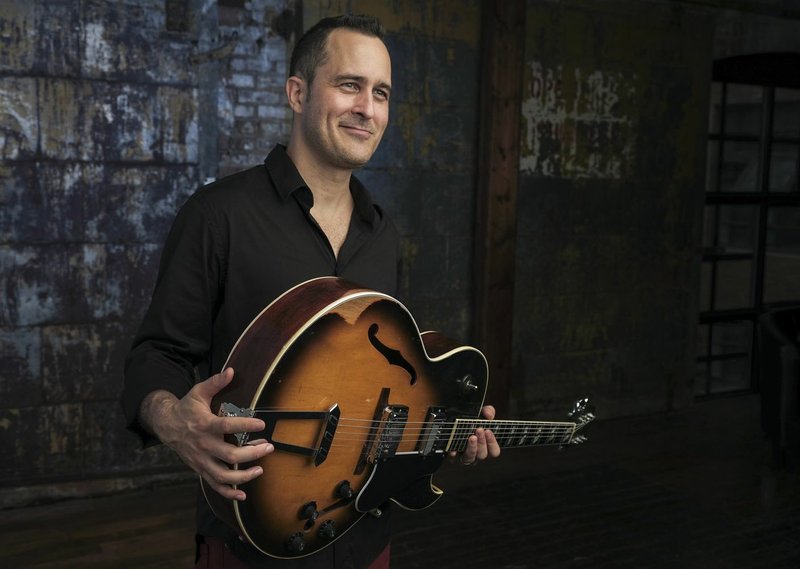Jonathan Kreisberg last came through Northwest Arkansas with Dr. Lonnie Smith only a few years ago. Now he's back in Fayetteville for a performance Saturday at Sunrise Stage with his trio of lauded musicians. From a young age, the jazz guitarist and composer was impressive on the instrument, and he has established himself as an international name in his pursuit of pushing the edges of the genre ever further.
Kreisberg took a few moments to discuss his work with 'SUP ahead of his return to Arkansas this weekend.
FAQ
Jonathan Kreisberg Trio
WHEN — 7:30 p.m. Saturday
WHERE — Sunrise Stage in Fayetteville
COST — $30-$40; discounted tickets for NWA Jazz Society members
INFO — digjazz.com, jonathankreisberg.c…
On his relationship with the audience:
Jazz is a very vibrant and alive art form. And it's really unique in that it has to be played by exceptionally gifted musicians for it to even be enjoyable, to be honest. Because anybody who learns a few chords on guitar, it can be pleasing to the ears because it's simple, you know? But you need to hear a master play jazz to understand what it is, because it's so difficult that it's really unique to hear someone who's effortless in their communication, and all sophisticated ideas have to become second nature so that they get to the point where they're communicating emotionally to the audience.
That's what people can expect is I'm trying to find ways of breaking ground, of course, in music because that's in my nature -- to find new ways of playing in this art form, which sometimes is sophisticated and sometimes it's simple. But at the end of the day, I want to make it feel good and make people feel something. When people come to a show of mine, it's not going to be an intellectual exercise. In most of my favorite music, those two things exist.
On pulling from the Great American Songbook:
Even though I'm basically a very modern jazz player -- my original music has a lot of stretching of harmonies and melodies and rhythms and the possibilities -- I still like to call upon those standards because there's so much juicy harmony and interesting melodies that basically the tunes today don't have.
On searching for his own sound:
I wanted to create a sound that was born out of the jazz tradition -- all of this beautiful line and harmonic and rhythmic swaying. But I was going to let it be open to all these other things that I liked and that I had experience with -- a music that was based on inclusion more so than exclusion. Because a lot of great music has been built on a form of exclusion in a way.
Like free jazz said, "Forget it, we're not going to play forms." Boom. They created something by rejecting something. Bebop said, "We're not going to keep the rhythm straight like that. We're not going to land on the 'right' notes." These all were rejecting something. So I realized that, to find what I was looking for, I was going to try and do something that the only thing excluded was, based on my subjective taste, things that I didn't think were of value.
I just wanted to create something that was great, and try let that take the best that I love from rock music, the best that I love from funk and soul and Latin music and from Greek music and Brazilian music and classical music. And that's what I've been doing since, and it really seems like a life quest because it doesn't seem to have an end.
NAN What's Up on 06/21/2019

